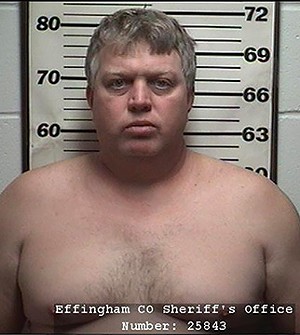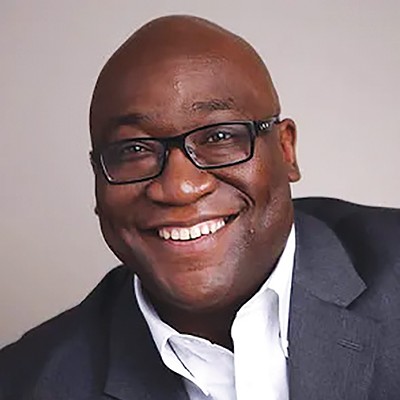Killer wants out of McFarland
Would live in Springfield
[
{
"name": "Air - MedRect Combo - Inline Content 1",
"component": "11490391",
"insertPoint": "3",
"requiredCountToDisplay": "1",
"parentWrapperClass": "fdn-ads-inline-content-block"
},{
"name": "Air - MedRect Combo - Inline Content 2",
"component": "11490392",
"insertPoint": "7",
"requiredCountToDisplay": "5",
"parentWrapperClass": "fdn-ads-inline-content-block"
},{
"name": "Air - MedRect Combo - Inline Content 3",
"component": "11490393",
"insertPoint": "12",
"requiredCountToDisplay": "9",
"parentWrapperClass": "fdn-ads-inline-content-block"
}
]
Outwardly, Gary Schmitt’s life seemed as normal as any.
He worked as finance director for Catholic Social Services in Belleville. In 2009, he was elected to the board of the Triad Community 2 School District in Troy. A fellow church member urged him to run, according to a media report.
But Schmitt had demons. Now, with a record of mental illness that culminated in killing, he wants to live free in Springfield, where he promises to keep taking prescribed drugs to curb violent tendencies. Experts at McFarland Mental Health Center say he should live in a group home and receive outpatient services from Memorial Behavioral Health Services. Last week, a judge ordered a review of opinions by experts who say Schmitt should be released, less than a decade after crimes that shocked communities south of the capital city.
Schmitt, 55, was diagnosed as mentally ill in the 1980s. In 2000, he thought his wife was putting poison in his coffee. The next year, he called police, reporting that a man in a car outside his house was watching him. The cops gave him a choice: Go to jail for filing a false report or see a mental health professional. One year later, in 2002, he drove his car into a bridge at 70 mph in a failed suicide attempt.
Prescribed Zyprexa to treat schizophrenia, Schmitt cut back on dosages – the drug made him groggy, he complained, and interfered with his work. His marriage fell apart. He drank. He got elected to the school board. And he killed his father.
The death of Jack Schmitt on Father’s Day in 2010 was not, at first, considered a homicide. Relatives found him on his garage floor. After an autopsy, stumped police canvassed the neighborhood and released a composite drawing. The killer delivered himself.
More than six months after the slaying, Gary Schmitt, via Facebook, reconnected with Kimberly Higgs, a high school acquaintance who lived near Effingham. Schmitt paid a visit, Higgs invited him inside. After she fetched him a glass of water, Schmitt pulled out a hunting knife and stabbed her more than a dozen times. When Higgs’ daughter intervened, he stabbed the 15-year-old girl. She ran out of the house while Schmitt drove away. He went to the home of his mother, who called police and said that her son wanted to give himself up.
Schmitt told police that he considered Higgs a “lamb” and that God had wanted him to kill her. “This is not in me,” he told police. “I don’t think like that, and obviously, I’m not very good at it. If I would have been thinking, I just would have brought my shotgun and did it. That’s why, after I got on the road afterwards, I thought this was just the stupidest fucking thing I did.”
Have you ever before thought of harming someone, police asked. That’s when Schmitt confessed that he’d killed his father by hitting him in the head with a rock that he’d brought from his home 85 miles away. His dad, he explained, had been in ill health, and he didn’t want him to suffer.
“The People would argue that these two cases, when considered together, suggest no person would be safe around the defendant,” prosecutors argued in a motion denying Schmitt bail.
Found not guilty by reason of insanity, Schmitt was committed to McFarland. The state has authority to confine him until 2098, but McFarland says that’s not necessary. Scores of reports on Schmitt are sealed, but in court records, McFarland staff have no criticism of Schmitt, whom they say receives injections of psychotropic drugs and has shown no signs of violence. In 2013, restrictions were relaxed so Schmitt could walk McFarland grounds without supervision. In 2016, when he needed heart surgery, the staff asked that he be allowed to spend two weeks at Memorial Medical Center without supervision, but a judge said no. That same year, Schmitt filed a petition to be released. He repeated the request in 2017, prompting Higgs and her daughter to write statements to an Effingham judge.
When Schmitt was sent to McFarland, Higgs wrote, a prosecutor promised her that he would stay confined for at least 20 years.
“I’m not sure why my daughter and I should be dealing with this again after six short years,” Higgs wrote in 2017. How, she asked, could anyone know whether Schmitt would stay on medication? She had pointed words for Schmitt’s relatives. “Will you be comfortable having him in your home walking up behind you?” she wrote. “Will you be comfortable letting him carve up the Thanksgiving turkey? He should have been sent to prison for life.”
Lauran Huntington, Higgs’ daughter, told the judge that her mother ate nothing but tomato soup for seven months due to nerve damage in her throat caused by Schmitt’s knife.
“It’s like a horror movie on repeat,” Huntington wrote in her 2017 statement. “It just is constantly playing, but over the four years it felt like it was muted. Still playing, but with no sound. As soon as we found out in February we were going to have to go back to court, it’s like someone took the remote and turned the off mute to full blast. It’s deafening.”
Bryan Kibler, Effingham County state’s attorney, says that a secure psychiatric facility, given its residents, must be a difficult place for anyone to live, yet McFarland staff, in nine years, never documented any sign of trouble with Schmitt. “Not one person ever got on his nerves to the point that he lost his temper,” says the prosecutor, who has successfully pushed for an expert outside McFarland to evaluate Schmitt. Kibler says he wants another opinion in part because efforts to release Schmitt have escalated as he has gotten older and particularly since he underwent open-heart surgery three years ago, presumably at state expense. “Ever since he had that health issue, the Department of Human Services has been much more aggressive in trying to kick him out,” Kibler says. “I have a concern about that.”
Last week, Effingham Circuit Court Judge Kimberly Koester granted the motion for an expert outside McFarland to evaluate Schmitt. “It’s a good idea to have a second opinion,” she said, according to a media report. Another hearing is scheduled for September.
He worked as finance director for Catholic Social Services in Belleville. In 2009, he was elected to the board of the Triad Community 2 School District in Troy. A fellow church member urged him to run, according to a media report.
But Schmitt had demons. Now, with a record of mental illness that culminated in killing, he wants to live free in Springfield, where he promises to keep taking prescribed drugs to curb violent tendencies. Experts at McFarland Mental Health Center say he should live in a group home and receive outpatient services from Memorial Behavioral Health Services. Last week, a judge ordered a review of opinions by experts who say Schmitt should be released, less than a decade after crimes that shocked communities south of the capital city.
Schmitt, 55, was diagnosed as mentally ill in the 1980s. In 2000, he thought his wife was putting poison in his coffee. The next year, he called police, reporting that a man in a car outside his house was watching him. The cops gave him a choice: Go to jail for filing a false report or see a mental health professional. One year later, in 2002, he drove his car into a bridge at 70 mph in a failed suicide attempt.
Prescribed Zyprexa to treat schizophrenia, Schmitt cut back on dosages – the drug made him groggy, he complained, and interfered with his work. His marriage fell apart. He drank. He got elected to the school board. And he killed his father.
The death of Jack Schmitt on Father’s Day in 2010 was not, at first, considered a homicide. Relatives found him on his garage floor. After an autopsy, stumped police canvassed the neighborhood and released a composite drawing. The killer delivered himself.
More than six months after the slaying, Gary Schmitt, via Facebook, reconnected with Kimberly Higgs, a high school acquaintance who lived near Effingham. Schmitt paid a visit, Higgs invited him inside. After she fetched him a glass of water, Schmitt pulled out a hunting knife and stabbed her more than a dozen times. When Higgs’ daughter intervened, he stabbed the 15-year-old girl. She ran out of the house while Schmitt drove away. He went to the home of his mother, who called police and said that her son wanted to give himself up.
Schmitt told police that he considered Higgs a “lamb” and that God had wanted him to kill her. “This is not in me,” he told police. “I don’t think like that, and obviously, I’m not very good at it. If I would have been thinking, I just would have brought my shotgun and did it. That’s why, after I got on the road afterwards, I thought this was just the stupidest fucking thing I did.”
Have you ever before thought of harming someone, police asked. That’s when Schmitt confessed that he’d killed his father by hitting him in the head with a rock that he’d brought from his home 85 miles away. His dad, he explained, had been in ill health, and he didn’t want him to suffer.
“The People would argue that these two cases, when considered together, suggest no person would be safe around the defendant,” prosecutors argued in a motion denying Schmitt bail.
Found not guilty by reason of insanity, Schmitt was committed to McFarland. The state has authority to confine him until 2098, but McFarland says that’s not necessary. Scores of reports on Schmitt are sealed, but in court records, McFarland staff have no criticism of Schmitt, whom they say receives injections of psychotropic drugs and has shown no signs of violence. In 2013, restrictions were relaxed so Schmitt could walk McFarland grounds without supervision. In 2016, when he needed heart surgery, the staff asked that he be allowed to spend two weeks at Memorial Medical Center without supervision, but a judge said no. That same year, Schmitt filed a petition to be released. He repeated the request in 2017, prompting Higgs and her daughter to write statements to an Effingham judge.
When Schmitt was sent to McFarland, Higgs wrote, a prosecutor promised her that he would stay confined for at least 20 years.
“I’m not sure why my daughter and I should be dealing with this again after six short years,” Higgs wrote in 2017. How, she asked, could anyone know whether Schmitt would stay on medication? She had pointed words for Schmitt’s relatives. “Will you be comfortable having him in your home walking up behind you?” she wrote. “Will you be comfortable letting him carve up the Thanksgiving turkey? He should have been sent to prison for life.”
Lauran Huntington, Higgs’ daughter, told the judge that her mother ate nothing but tomato soup for seven months due to nerve damage in her throat caused by Schmitt’s knife.
“It’s like a horror movie on repeat,” Huntington wrote in her 2017 statement. “It just is constantly playing, but over the four years it felt like it was muted. Still playing, but with no sound. As soon as we found out in February we were going to have to go back to court, it’s like someone took the remote and turned the off mute to full blast. It’s deafening.”
Bryan Kibler, Effingham County state’s attorney, says that a secure psychiatric facility, given its residents, must be a difficult place for anyone to live, yet McFarland staff, in nine years, never documented any sign of trouble with Schmitt. “Not one person ever got on his nerves to the point that he lost his temper,” says the prosecutor, who has successfully pushed for an expert outside McFarland to evaluate Schmitt. Kibler says he wants another opinion in part because efforts to release Schmitt have escalated as he has gotten older and particularly since he underwent open-heart surgery three years ago, presumably at state expense. “Ever since he had that health issue, the Department of Human Services has been much more aggressive in trying to kick him out,” Kibler says. “I have a concern about that.”
Last week, Effingham Circuit Court Judge Kimberly Koester granted the motion for an expert outside McFarland to evaluate Schmitt. “It’s a good idea to have a second opinion,” she said, according to a media report. Another hearing is scheduled for September.
Illinois Times has provided readers with independent journalism for almost 50 years, from news and politics to arts and culture.
Your support will help cover the costs of editorial content published each week. Without local news organizations, we would be less informed about the issues that affect our community..
Got something to say?
Send a letter to the editor and we'll publish your feedback in print!





















